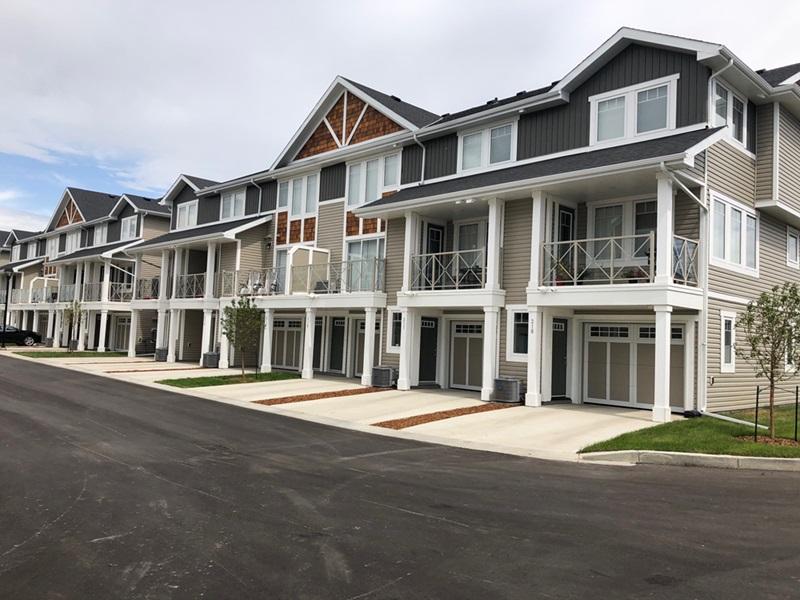
Benjamin Tal, the deputy chief economist at CIBC. (Courtesy CIBC)
The next six months will be more difficult economically than the past quarter, but the Canadian housing market is expected to continue its V-shaped recovery.
The forecasts were made by CIBC World Markets deputy chief economist Benjamin Tal on Tuesday as part of the Canadian Apartment Investment Conference, which is being held virtually this year due to COVID-19 concerns.
Tal said it’s reasonable to expect a second wave of the coronavirus, which may already be starting in Canada. That could coincide with the arrival of the traditional fall flu season and make people more fearful of going out.
That would hurt the service sector, which has already been the biggest economic victim of the COVID-19 crisis and could use a lift.
“If you’re a small business, you have to pay rent,” Tal said. “We need to come up with rental support for small businesses and then establish a wage subsidy.”
He said businesses received a boost from the reopening of most of the economy during the summer months. That will be absent during the fall and winter, which will also slow the recovery.
“We are recovering into some sort of recessionary territory,” Tal predicted.
Housing market should continue recovering
Tal was more optimistic about the housing market, which has outperformed most expectations because of continued low interest rates and strong pent-up demand.
“Eighty per cent of jobs lost were in the service sector. Many of them were low-income and many of them were renters. So the impact was on rent as opposed to home ownership.
“We’re seeing a situation where home ownership actually went up. Why? Because 25 per cent of Canadians are telling us that they’re considering buying another unit during this recession.
“Why? Because their job is still there and their income is still there and interest rates are in the basement. That’s an opportunity that they’ve been waiting for and that’s why we’re seeing some demand come from domestic homeowners, not foreign.”
Tal believes the low-rise housing market will be fine and lower-priced condominiums could appeal to investors and those planning to live in the units.
More expensive condo buildings and suites will be more vulnerable over the next six months, as there may be a small oversupply as the economy slows.
“The whole real estate market will stabilize at current levels, as opposed to continuing to rise by 20 per cent per year in terms of prices,” said Tal.
Rental housing market will remain soft
The rental housing market is already slowing down, with rents declining and vacancy rates rising owing to an increased supply and dwindling demand.
Tal said some young adults who were living with their parents will likely now stay with them longer. Others who had moved out may be returning, or pairing up with other people to cut costs after losing jobs or income.
Canada will lose a significant amount of immigrants in 2020, but Tal doesn’t believe that situation is as bad as some others have forecast.
While the country receives an average of 350,000 immigrants annually, 45 per cent of those are already in Canada, he said.
“Their status is changing, but they’re already in the country consuming real estate and consuming rentals. So, the decline in the number of new immigrants is not as dramatic as perceived.”
Tal pointed out there are about 3.5 million Canadians living abroad. A large proportion are in the United States and might be pondering a return due to a more acute COVID-19 crisis and social and political unrest south of the border.
Political and financial uncertainty in Hong Kong is also prompting some of the 400,000 Canadians living there to return.
“The number of returning citizens actually went up by 90,000 over the past six months,” said Tal. “There’s evidence in the market that Chinese money from Hong Kong is entering the market.”
About 100,000 Canadians annually move to the U.S., but that number will be much lower this year due to the closed border.
“That’s 100,000 people who are staying in Canada and not selling their houses and adding to supply,” said Tal.
“I think the rental market will remain relatively soft for the next six months or so, but I don’t think the supply aspect is really a factor because it will slow down.
“I suggest that the demand factor isn’t as bad as perceived because the demographic story is better than some people suggest, given the compensating factors of non-permanent residents, returning citizens and people who don’t move to the U.S.”











